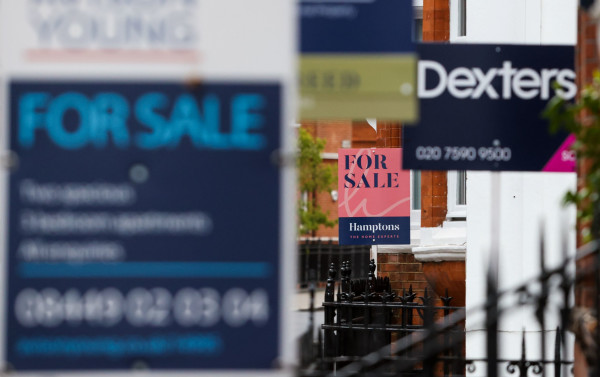

Globally, this sector is worth $30tn (£21.2tn) in assets under management annually, accounting for around a quarter of all professionally managed assets.
The need to prioritise people and planet alongside profits is only getting stronger. The UK’s commitment to achieve net carbon zero by 2050 means sustainability is no longer a ‘nice to have’ but a legal obligation.
However, the UK residential property sector is lagging behind. Many real estate funds and real estate investment trusts have, like their counterparts across professional investment sectors, been paying attention to sustainability for some time.
But these institutions are only responsible for a fraction of the housing market. UK residential property is dominated by individual investors or small private companies: 94 per cent of property investors were individuals in 2018, while in 2016, 93 per cent of residential property investors owned four or fewer properties.
Many smaller investors are not aware of the growing importance of sustainability, nor why if they get it right it could make financial sense.
What is sustainable residential property investing?
At its simplest, sustainable property investing is about making profit from property – buying, building and improving bricks and mortar assets, with positive ESG impacts (or at least without negative impacts).
Unlike charity, it is about making a profit, creating competitive long-term returns. Unlike traditional investing, it is not about a ‘quick buck’ with no care for others or the world we inhabit.
The positive externalities that can be measured by ESG criteria range from improving the affordability of quality housing for local key workers to reduced emissions associated with heating homes.
The investors I work with want cash flow and to protect and grow their wealth without too much risk or hassle. The most important commercial argument for sustainability is that it can help you achieve these goals in the long term.
More sustainable investments can improve long-term cash flow
Your cash flow as a property investor is rent less costs, which include finance, management and maintenance. More sustainable investments can have better cash flows.
Tenants may be willing to pay higher rents in exchange for lower heating bills that come with environmentally friendly properties. Providing quality, affordable housing to the type of tenants who will benefit most from this, such as young families or key workers, generally reduces void periods. Families stay longer and key workers keep their jobs throughout market cycles.
With the advent of green mortgages, finance costs are falling for investors in more sustainable properties, while maintenance costs are also lower; for example, eliminating the cost of repairing and replacing gas boilers.
More sustainable investments enable you to protect and grow wealth
With commercial property, tenants and potential buyers are willing to pay more for environmentally efficient buildings, so they are worth more to investors.
In the residential sector, this ‘green premium’ or ‘brown discount’ is being catalysed by new minimum efficient energy standards. Since April 1 2018, it has been illegal to grant a new tenancy on properties with an Energy Performance Certificate rating of below E.
Since April 1 2020, it has been illegal to continue letting such property (unless exempted). This minimum standard is expected to increase over coming years, as the government strives to meet its legally binding commitment to achieve net carbon zero. Less efficient properties will be, and arguably already are, worth less.
Many investors want to build a legacy to pass on to future generations. Financial planners and tax advisers will focus on structuring as a way to minimise inheritance tax ‘leakage’. A more important point is to ensure that the assets you own will hold their value for years to come.
This is all about providing regulatorily compliant properties that people want to live in, where they want and need to live, at a price they can afford. Such properties hold their value better and are more resilient through market cycles.
More sustainable investments are less risky and feel good
Residential property attracts investors because the amount of risk (or perceived risk) for a given return is relatively small. There are two major sources of risk and future cost that can be avoided by investing in a more sustainable way. First, there are physical risks of climate change, such as flooding, so it may not be ‘sustainable’ to build in an area at high risk of flooding or coastal erosion.
Second, there are transition risks, largely associated with new regulations coming in so that the UK can achieve its net carbon zero target. More than 75 per cent of UK housing stock was built before building regulations required insulation, so a significant proportion has high transition risk. Focusing on properties that do not have this risk makes sense, since it is difficult to quantify the cost of transition, but it will undoubtedly be expensive.
Investing sustainably helps investors feel good and encourages more people to want to work with you. There is good karma and practical marketing benefits that make your life as an investor easier; all other things being equal, your investments will also be more profitable.
Conclusion
For long-term investors in UK residential property, the simple goal of profit maximisation is being replaced. Investments must increasingly be profitable as well as sustainable: economically resilient, with positive ESG metrics. Sustainable investments can make great financial sense by enhancing cash flows and values, reducing risks, and making investing easier.
Anna Clare Harper, is chief executive of property asset manager SPI Capital



